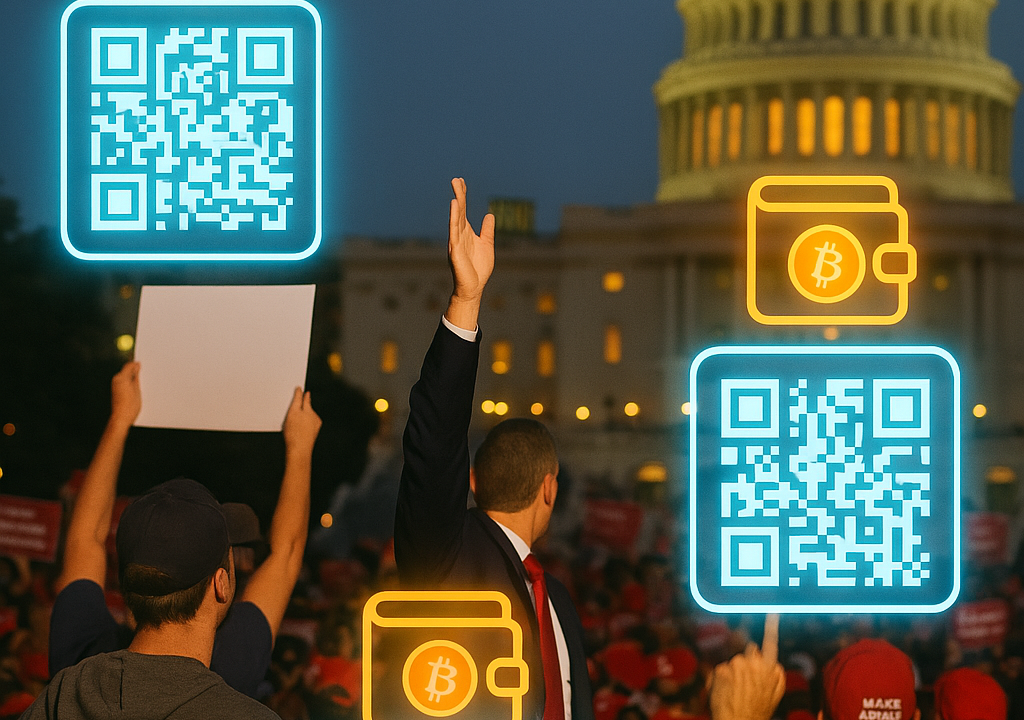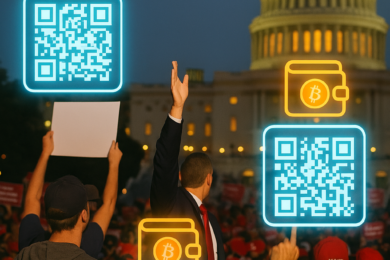hi jeffrey soon i will reach you out

Introduction: A Collision of Crypto and Power
In a twist that seems more fitting for a political thriller than real life, former President Donald Trump has once again found himself at the center of controversy. But this time, it’s not about classified documents or election interference—it’s about cryptocurrency. With the U.S. Department of Justice (DOJ) reportedly scrutinizing crypto donations potentially linked to Trump-aligned entities, the intersection of digital currencies and politics has taken a front seat in America’s ongoing power saga.
The full article from The Guardian (source) outlines how DOJ investigators are following a trail of cryptocurrency flowing into political campaigns, potentially tied to foreign interests and anonymous donors.
A Brief Background: Trump and the Crypto Connection
Though initially skeptical of Bitcoin and cryptocurrencies during his presidency, Donald Trump has seemingly softened his stance in recent years. Reports have indicated that several Super PACs (Political Action Committees) and Trump-affiliated fundraising vehicles have accepted crypto donations, including Bitcoin and stablecoins like USDT.
This pivot has aligned Trump with a growing portion of the conservative base that sees cryptocurrencies as a tool for financial freedom and an alternative to central bank control.
What the DOJ Is Investigating
According to The Guardian, the DOJ is investigating whether these crypto donations were:
- Anonymous or untraceable in a way that violates campaign finance laws.
- Linked to foreign donors, which would be a direct violation of U.S. election laws.
- Funneled through blockchain mixers or privacy-enhancing tools to obfuscate the original source.
This investigation could redefine how crypto interacts with political fundraising. While the blockchain is inherently traceable, advanced laundering techniques and decentralized exchanges (DEXs) pose new challenges for regulators.
Why This Matters: The Legal and Ethical Quagmire
The U.S. legal framework has lagged behind the crypto boom. While the SEC and CFTC fight turf wars over who gets to regulate what, political campaigns have quietly embraced crypto donations.
If Trump’s crypto-linked funds are found to have violated laws, it could lead to:
- Sweeping campaign finance reforms, particularly regarding crypto.
- Tighter restrictions on digital donations to prevent anonymity loopholes.
- Increased scrutiny of all politicians accepting digital currencies.
Historical Echoes: Foreign Influence in U.S. Elections
The fear of foreign interference isn’t new. From the 2016 elections and Russian meddling, the U.S. public has grown more cautious. Crypto adds a new layer of complexity to this concern:
- Low entry barrier: Anyone with a crypto wallet and internet access can send funds.
- Global accessibility: No SWIFT, no intermediary banks, no questions asked.
- Token mixing: Tools like Tornado Cash or Wasabi Wallet make forensic tracking difficult.
Crypto’s Political Identity Crisis
While some progressive politicians like Andrew Yang and Miami Mayor Francis Suarez have embraced crypto, it has increasingly found a home within right-wing libertarian circles. Trump’s cautious dance with digital assets could be an attempt to capture this energized voter base.
However, this alignment also raises questions:
- Should cryptocurrencies be a partisan issue?
- How do we ensure transparency without stifling innovation?
- Can blockchain technology offer the very solution to the transparency it now threatens?
The Tech Side: Blockchain Forensics and Regulatory Innovation
The rise of blockchain forensics firms like Chainalysis and TRM Labs has equipped agencies like the DOJ with tools to trace even the most obscure crypto flows. Yet, the cat-and-mouse game continues.
With zero-knowledge proofs, MPC wallets, and privacy coins like Monero and Zcash, bad actors constantly find new ways to bypass oversight. Regulators must now build frameworks that can:
- Differentiate between privacy and concealment.
- Ensure KYC/AML compliance on all political crypto donations.
- Enforce international cooperation on cross-border flows.
Recommended Reading:
Political Fallout and Media Frenzy
As expected, this revelation has caused ripple effects across party lines. Democrats are demanding transparency, while some Republicans call it a political witch hunt. Trump supporters, meanwhile, argue it’s just another attempt to derail a 2024 comeback.
Media outlets have taken varied stances, with some crypto influencers warning that this could lead to draconian regulations. Others see it as a necessary step to bring accountability to a lawless corner of campaign finance.
Related News:
What This Means for the 2024 Elections
Whether or not Trump is found culpable, the 2024 elections will be a watershed moment for crypto in politics. We can expect:
- Mandatory disclosure of wallet addresses for campaign donations.
- Limits on foreign-sourced crypto transactions.
- Heightened media scrutiny on tech-savvy campaign finance operations.
This may also open doors for blockchain voting solutions, ironically using the same tech under scrutiny to restore trust.
Closing Thoughts: A Defining Moment for Crypto Policy
The intersection of cryptocurrency and politics is no longer hypothetical. It’s unfolding in real-time, and its outcomes will define not just how we vote, but who pays for our leaders to win.
Donald Trump’s alleged involvement, regardless of the final legal outcome, will likely usher in a new era of crypto regulation, redefining how political influence is traced, measured, and audited in the digital age.
As the DOJ probes deeper, we may be witnessing a turning point—where blockchain either becomes the villain of political corruption or the hero of accountability. And that, dear reader, is the real fork in the chain.














No Comments